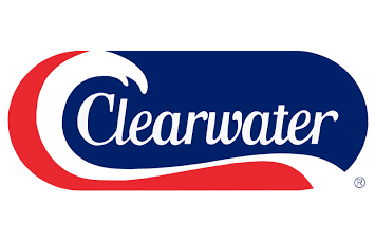Clearwater Seafoods considering sale of company

Clearwater Seafoods Incorporated, a Halifax, Nova Scotia, Canada-based company that reported over CAD 610 million (USD 454 million, EUR 405 million) in sales in 2019, is considering the outright sale of the company, according to a press release.
In an announcement on 5 March, the company said it has “initiated a formal strategic process to identify, review, and evaluate a broad range of potential strategic alternatives available to it with a view to continuing to enhance shareholder value.” That includes, according to the company, the potential sale of all or a material portion of the company’s assets, after “several expressions of interest.”
“Clearwater’s board of directors has determined it is timely, prudent, and in the best interests of the company and its stakeholders to commence the strategic review in light of the company having recently received several expressions of interest,” Clearwater said in a release. “The company’s board of directors, including representatives of its controlling shareholders, is committed to fully evaluating appropriate strategic options while simultaneously supporting the company’s management and employees in their ongoing efforts.”
That review does note necessarily mean that Clearwater is up for sale, but the option is a part of the review, according to the release.
“Strategic options may include, but are not limited to, a sale of all or a material portion of Clearwater’s assets, either in one transaction or in a series of transactions, the outright sale of Clearwater, a merger or other transaction involving Clearwater and a third party, joint ventures, licensing arrangements, various financing alternatives, or other significant transaction,” the company announced in a release.
One key aspect of the sale, according to the CBC, is the requirement in Canada that all Canadian fishing licenses be held by a majority Canadian-owned company. Any sale would have to take that into account.
"This will clearly be a key consideration in the strategic review process," Christine Penney, Clearwater's vice-president of sustainability and public affairs, said in a statement, according to the CBC.
The consideration for sale certainly isn’t due to a poor year, as it comes after Clearwater’s 2019 annual report showed positive results from the fourth quarter and a positive year overall. The company had fourth-quarter sales of CAD 167.1 million (USD 124.4 million, EUR 111.1 million), an increase of CAD 7.2 million (USD 5.4 million, EUR 4.8 million) year-over-year.
The year as a whole was positive, with sales of CAD 616.2 million (USD 458.6 million, EUR 409.7 million), an increase of just under CAD 24 million (USD 17.9 million, EUR 16 million) from CAD 592.2 million (USD 440.7 million, EUR 393.7 million) in 2018.
The company’s EBIT saw a significant jump. In 2018, the company lost CAD 1.9 million (USD 1.4 million, EUR 1.3 million), but in 2019 the company saw an EBIT of CAD 56.5 million (USD EUR ), an increase of CAD 58.4 million (USD 43.5 million, EUR 38.8 million). The company’s adjusted EBITDA was CAD 114.9 million (USD 85.5 million, EUR 76.4 million), an increase of CAD 10.5 million (USD 7.8 million, EUR 7 million) over 2018.
For the year, the company saw increases in sales across almost every single major species, with the only exception being coldwater shrimp. Coldwater shrimp saw a sales decrease of CAD 3.5 million (USD 2.6 million, EUR 2.3 million) from CAD 70.9 million (USD 52.8 million, EUR 47.2 million) down to CAD 67.4 million (USD 50.2 million, EUR 44.8 million).
However, all other species saw increases in sales. The largest increases were seen in the company’s clam sales, which increased by CAD 8.4 million (USD 6.3 million, EUR 5.6 million) to CAD 128.7 million (USD 95.8 million, EUR 85.6 million) in 2019.
The company’s largest earner, scallops, also saw increases year-over-year. Total sales amounted to CAD 174.2 million (USD 129.7 million, EUR 115.8 million), an increase of CAD 2.8 million (USD 2.1 million, EUR 1.9 million) over 2018’s totals. That was partially buoyed by a strong fourth quarter, which saw “strong demand for premium scallops,” according to the company’s annual review.
The consideration for selling the company comes as the ongoing COVID-19/coronavirus outbreak – which started in early December in Wuhan, China – has impacted the company’s exports to China as the country continues to restrict trade. China represents Clearwater’s second-largest sales destination – the company sold CAD 154.8 million (USD 115.3 million, EUR 102.9 million) worth of seafood to China in 2019. That represented an increase in sales of CAD 24.4 million (USD 18.2 million, EUR 16.3 million) over 2018.
"If anybody in the industry is telling you things are fine, clearly that is not the case. But the sky is not falling either," Clearwater Seafoods CEO Ian Smith said according to the CBC.
Smith said that the current restrictions means all live lobster sales in the country have been virtually halted, as the supply of live lobster has likely been either eaten or further processed. Once trade resumes, those empty tanks will need to be filled.
“In 2019, Clearwater grew volume, revenue and margins while significantly reducing our debt and leverage,” Smith said. “In response to the rising tide of trade, economic and geo-political challenges in several major markets, our team responded with discipline, agility, entrepreneurial spirit and grit, expanding distribution to more than 58 countries, growing total adjusted EBITDA over 10 percent and reducing leverage by 0.6 points to 4.1 times earnings versus the prior year.”
The details of the potential sale won’t be disclosed, the Clearwater release stated, unless the board of directors approves a specific transaction.
“Clearwater cautions that there are no assurances or guarantees that the strategic review will result in a transaction or, if a transaction is undertaken, the terms or timing of such a transaction,” the release said. “Clearwater has not yet set a definitive schedule to complete its identification, examination and consideration of strategic alternatives.”






Share